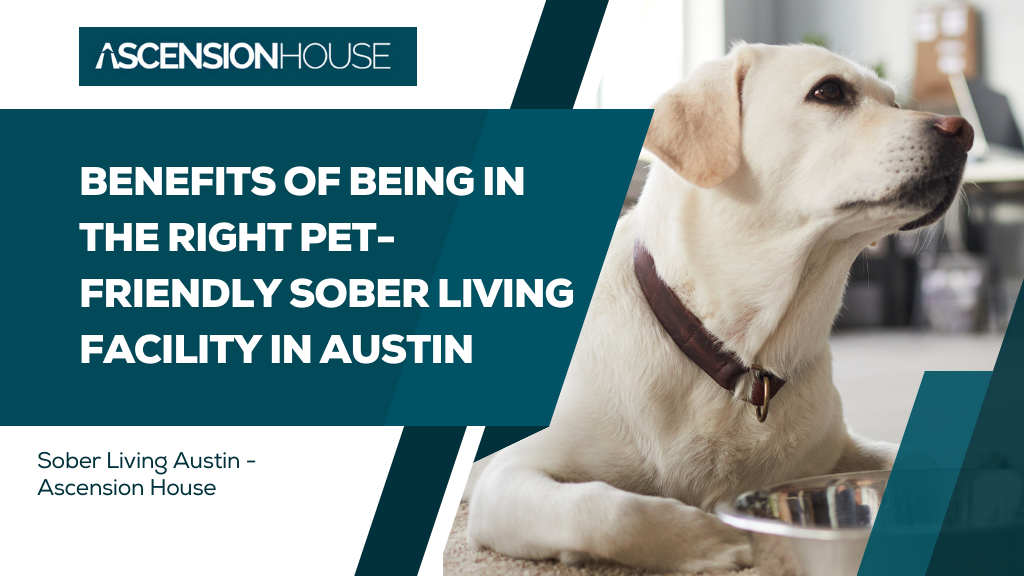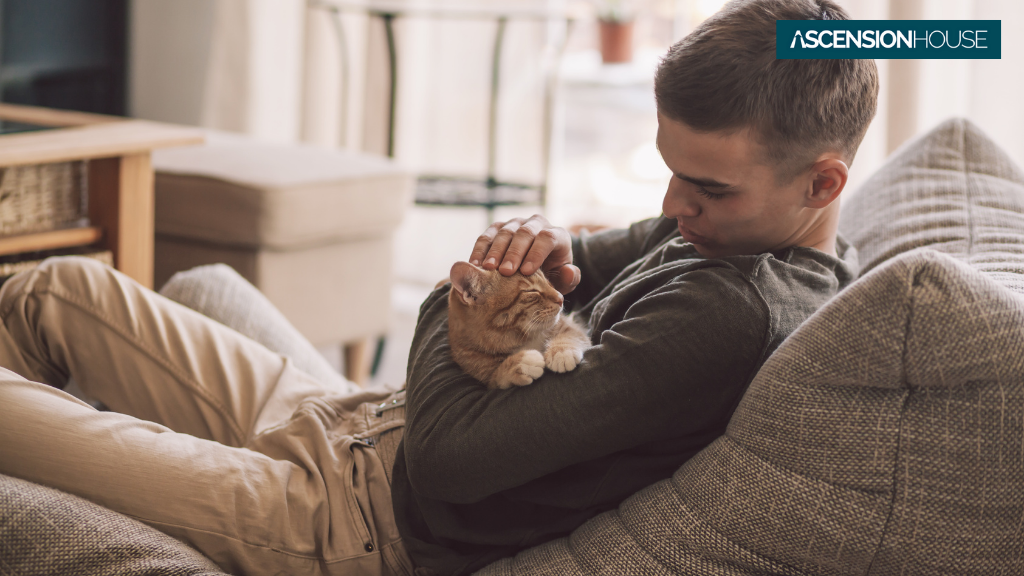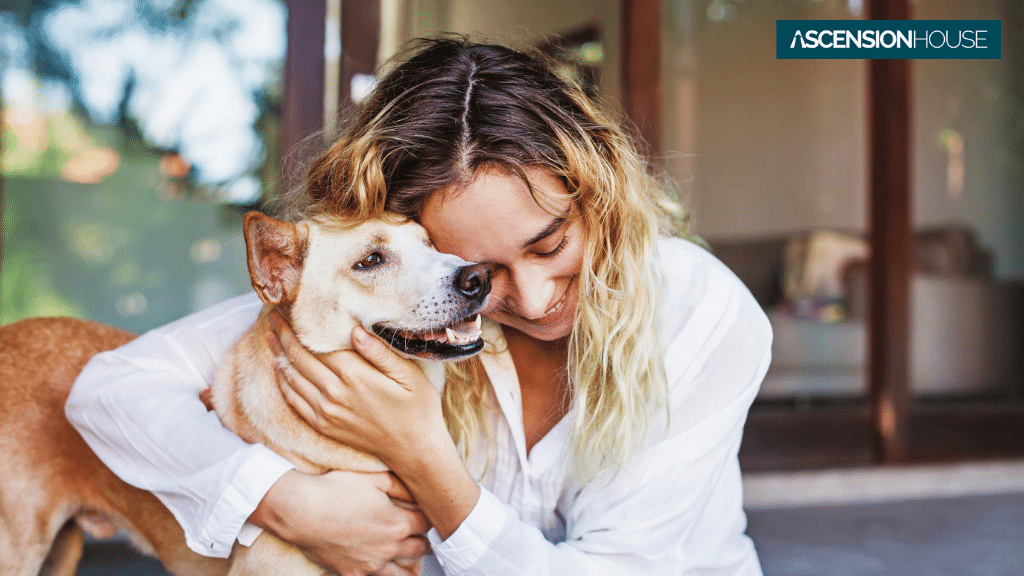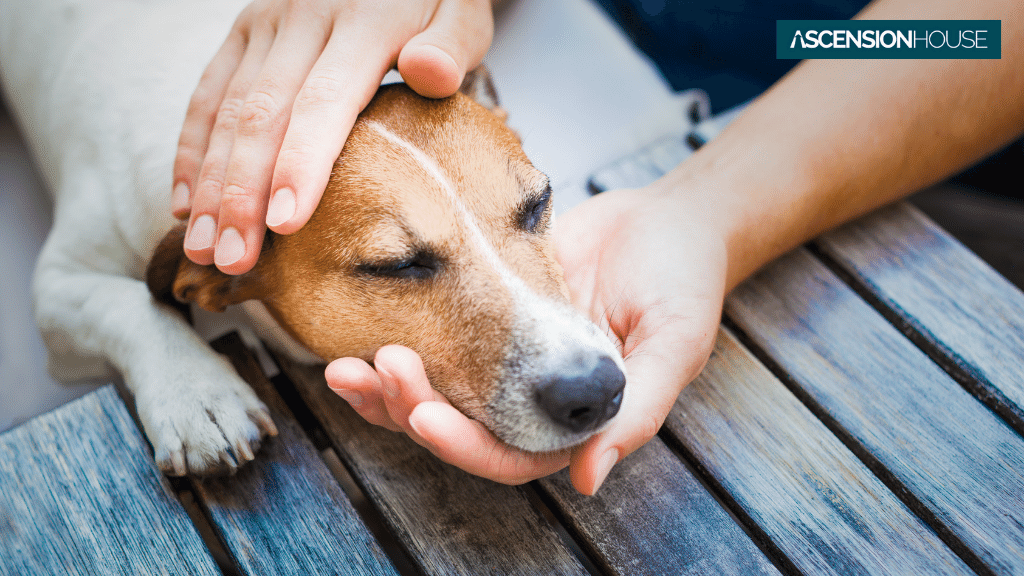
Transitioning from a rehab center to a home can be complicated for many people. Sometimes, the person doesn’t know if they can handle the stress of everyday life again. Other people think they don’t have enough life skills to tackle their old routine.
Sober living homes make the process easier by bridging rehab facilities and the real world. You can get the proper outpatient treatment while you adapt to this new world and ensure you get back out there with the best energy.
What if you have a pet, though? Pet owners often have added stress on their shoulders because they have to rearrange their care. Most of the time, the problem comes because these people don’t have anyone to take care of their best friend while they’re at the sober living home.
You can solve that issue by going to a pet-friendly sober living facility. It may not look like it, but having your pet around could help you adapt to your new sober life. With the right amenities and support, this could be the perfect combination to help during an addiction treatment.
Keep reading to learn more about pet-friendly sober living homes and how they help in addiction recovery processes.
Discover the advantages of the ideal pet-friendly sober living in Austin!https://t.co/9mjT163bWG pic.twitter.com/FQg8d0UgUn
— Ascension House – Sober Living Austin (@AscensionSober) October 16, 2023
Why Would Someone Need to Have a Pet During Their Sober Living Program?
There are many reasons to have a dog or other animals while recovering from addiction. One common reason is that these people don’t have anyone to leave their pets with.
Whether that’s the case or not, having your pet around can give you the emotional support you need to stay strong during your recovery journey. One of the main principles of achieving sobriety is looking outside of oneself and caring for others. Pets need a high level of care, so they’re the perfect companion for many residents.
Caring for a pet is an unselfish act that helps people look beyond themselves and pay attention to other things. Considering that perspective, it’s reasonable to argue that having your fluffy friend while recovering is a great option to support your mental health at a sober living home.
Does Having a Pet Around Help in the Recovery Process?
Yes! A pet can play a huge role in a resident’s recovery journey. Even though it may seem like caring for something other than oneself during this process is overwhelming enough, caring for a pet has plenty of benefits to consider.
Of course, the results vary on a case-by-case basis, so the resident needs to evaluate their options with the sober living home staff and their sponsors.
Here are some of the benefits of having pets around during a recovery process:
Acceptance
Circumstances that are out of our control are one main reason people relapse. Even though relapsing can be highly discouraging, it doesn’t mean it’s the end of the journey for the person.
An essential component of a person’s recovery process is understanding and accepting that some things are simply out of our control, so there’s no need to react in those cases. How do pets help here?
Regardless of their calmness, most pets can be unpredictable and stressful. Those with dogs may often have to deal with them munching on objects or peeing on the floor, for example.
Here’s where an important lesson comes in. Eventually, you learn to love your pet even though its behavior can sometimes be frustrating. This teaches you how important patience and acceptance are, which helps during recovery.
Discipline
Taking care of an animal isn’t easy. Most pets need someone to watch them for most of the day, so this task requires discipline from the resident.
Asking for discipline out of the blue can make the process harder for a recovering resident. However, if they have to care for an animal, they’re more likely to do it since its life depends on how well it’s taken care of.
Many pet-friendly sober living facilities have a community pet that residents must take care of. In these cases, it’s normal for the residents to share activities like feeding, grooming, and playing. This helps a lot when working toward long-term sobriety, as it teaches residents to be more consistent.
Community
Having a pet often helps residents socialize and connect. For example, taking a dog for a walk can lead to a meaningful conversation with a fellow resident. Those who share the responsibilities of caring for a single pet can also experience the other benefits we mentioned.



Do All Sober Living Facilities Allow Residents to Get Their Own Dog In?
Not all of them. Usually, sober living homes have strict rules surrounding pets. They include restrictions on breeds, sizes, etc. If one of the residents has pet allergies, getting any animal in the home may be harder unless the staff gets them into a pet-free environment.
Alternatively, some facilities have a house pet that residents can care for. Feel free to ask which options are available at the sober living home of your choice.
Bottom Line
Having a pet around can get plenty of benefits for Austin sober living home residents. In most cases, caring for another living being can help build a stronger sense of patience, dedication, and consistency.
Among all the sober living locations in Austin, Sober Living Austin – Ascension House offers one of the most comprehensive programs for recovering addicts. From weekly house meetings to a loving and caring recovery community, residents will find all the resources they need to move on from their struggles and start living healthy and happier lives.
FAQs
It depends on the facility you choose, the type of room you get in, and any other amenities/services you may need. You can call us at 512-598-5030 for more information about our pricing.
Usually, the minimum stay for a sober living home is 90 days. However, most people can stay from 166 to 254 days. It depends on the case.
It makes transitioning from a rehab facility to independent living much easier. These homes give residents the tools and resources to avoid the risk of relapsing and prioritize sobriety.
Book a Free Assessment
Contact us to schedule a free addiction or mental health assessment as part of our admissions process.
 11700 Bittern Hollow Dr., Austin TX 78758
11700 Bittern Hollow Dr., Austin TX 78758 (512) 598-5030
(512) 598-5030






